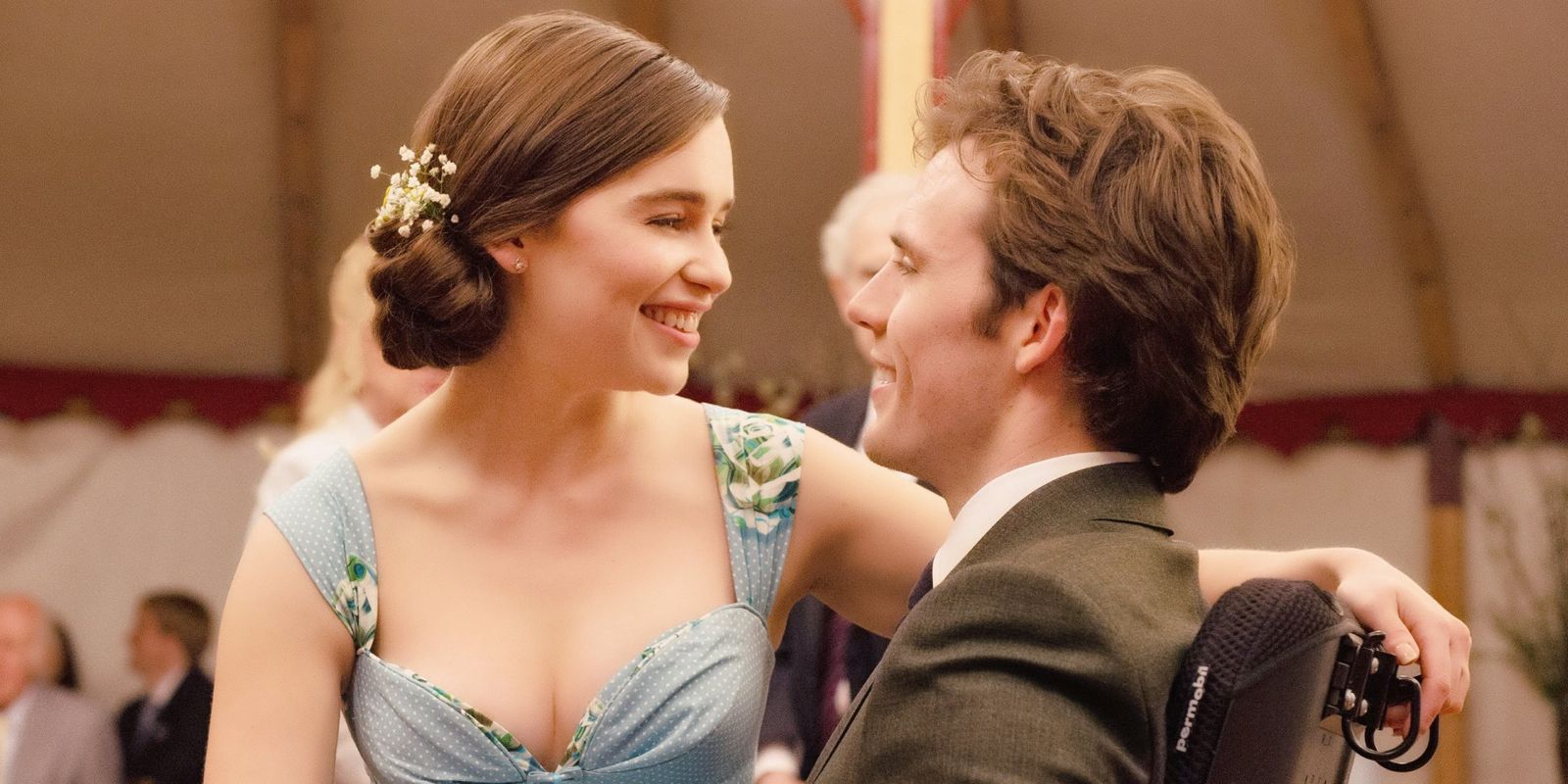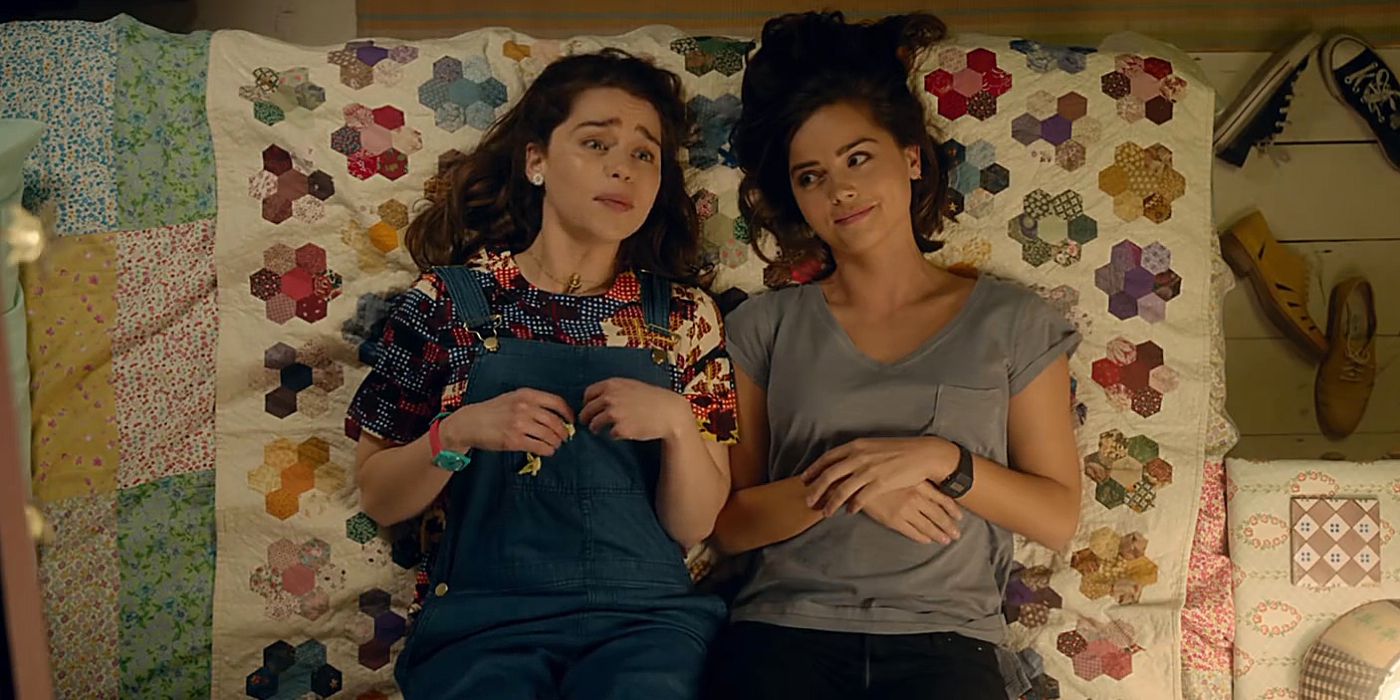Me Before You's reliance on formula prevents it from being as compelling as it could have been.
In Me Before You, carefree daredevil Will Traynor's (Sam Claflin) life drastically changes after he's in an accident that paralyzes him from the waist down. After two years confined in a wheelchair, Will has developed a very poor (and bitter) attitude towards his parents. In an attempt to turn things around, Will's family places a help ad for a caretaker - someone who will be a companion to their son and hopefully cheer him up.
After losing her job at a café, Louisa Clark (Emilia Clarke) comes across the opening and is hired, despite having limited qualifications. Turned off by Will's pessimistic outlook on life, but desperately needing the money to support her family at home, Louisa dedicates herself to her new line of work and tries to positively impact Will's life so he believes that it is still worth living - even though he can no longer do the things he was accustomed to.
Adapted from the novel by Jojo Moyes, Me Before You attempts to be the next great tear-jerking romantic drama, but it ultimately falls short of its aspirations. The chemistry between Clarke and Claflin is wasted due to a narrative that doesn't emotionally resonate as well as it should, as the plot feels more like going through the motions of clichés rather than earned developments.
The screenplay, which was also written by Moyes, is arguably the film's weakest link. In particular, the introduction to Will's character is mishandled. While he is understandably sarcastic and negative at the beginning, these traits are dialed up in such a way during the first act that Will comes across as borderline unlikable. If audiences had spent more time with Will prior to his accident, he may have been set up as a more sympathetic lead than presented. Unfortunately, viewers barely get to know him or what his previous life entailed (save for a short sequence), meaning it's difficult to tell if Will is merely deflecting due to his condition. As a result, the relationship that forms between Louisa and Will could be difficult to buy into for some, since the "turn" in their dynamic just happens for the sake of the plot - as opposed to feeling like a natural progression.
That said, when Clarke and Claflin are together, the two play off each other very nicely. Director Thea Sharrock does a good job of establishing the stark contrast between the duo (see: Louisa's home vs. Will's estate). Clarke shines as the bubbly and kind-hearted Louisa, following the classic fish out of water archetype as she adjusts to working with the wealthy Traynor family. Claflin is also solid as Will, a man obviously tortured by what has happened to him. When the script allows it, the actor can play into his natural charm, and there are certain beats that pay off along the way. The duo elevates the final film, using their talents to make Me Before You feel breezy through most of the running time.
In a film like this, it's expected for the protagonists to get most of the screen time, but Sharrock spends perhaps a little too much time with them. Portions of the supporting cast are greatly underserved, especially Matthew Lewis as Louisa's boyfriend, Patrick. He's more of a plot device than a real person, there primarily to give the movie a love triangle element that really isn't needed. At times, the script seems to forget Patrick exists, and only uses him when it needs to. Actors such as Samantha Spiro, Brendan Coyle, and Jenna Coleman are decent as Louisa's family, but they are likewise given very little to do outside of serving as support for the overwhelmed Lou. On the flip side, Janet McTeer and Charles Dance are perhaps the film's most sympathetic characters as Will's parents, conveying the pain any caring mother and father would feel in this kind of situation. Stephen Peacocke is also nice as Nathan, Will's nurse who doubles as a good friend.
Me Before You is victim to some glaring tonal shifts that may jar the viewer. Some of the interactions between Louisa and Will are played for laughs (see: a bit at a horse racing track), but when the film embraces its more dramatic elements, it goes too far in a few places. Finding that right kind of balance isn't easy here, and Sharrock deserves credit for trying, but the film has some difficulties working with its sensitive subject matter. The darker third act may have hit as hard as intended if the blossoming romance had more of an engaging hook, but the places it goes may leave certain moviegoers wondering what the point of the story was. Me Before You has come under fire by members of the disabled community, with the portrayal of Will being the main criticism. Depending on how one views it, his arc either comes across as unearned or is a fitting end to the story as set up - but neither is particularly rewarding.
In the end, Me Before You's reliance on formula prevents it from being as compelling as it could have been. Clarke and Claflin make for a strong couple, but the material they're working with undercuts the film's full potential. It certainly has its moments, but the themes and messages ultimately fall flat and don't connect with the audience. While those looking for a reprieve from big budget summer tentpoles may find something of value here, moviegoers outside of the target demographic could be left unsatisfied. Me Before You is very middle-of-the-road and doesn't succeed in all of its goals to be a memorable endeavor.
Trailer
Me Before You is now playing in U.S. theaters. It is 110 minutes long and is Rated PG-13 for thematic elements and some suggestive material.
Let us know what you thought of the film in the comments below!



